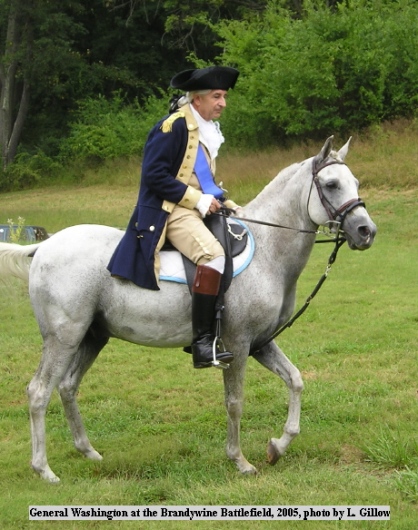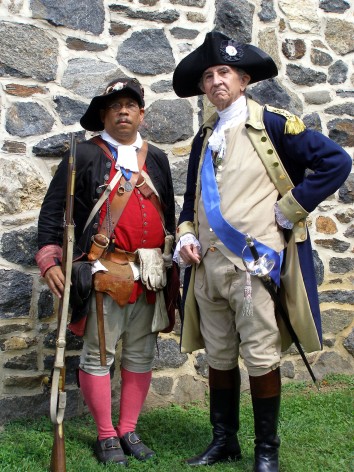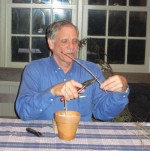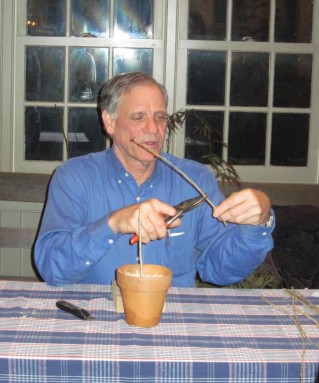We are thrilled to have Victory Brewing Company as a participating sponsor in this year’s Chadds Ford Days on September 12-13. As a local home-grown brewery, Victory’s roots run deep in the Brandywine Valley. Having begun operations in 1996, Victory has expanded it’s reach into 34 states with its original craft beer that combines “European ingredients and technology with American integrity.” Its widely acclaimed brewery and restaurant serves its patrons locally with three brewpubs in Downingtown, Kennett Square and, coming soon, Parkesburg. We thank Victory for helping to set up an on-site tavern at Chadds Ford Days and can’t wait to enjoy its tasty brews.
Category Archives: spotlight
Chadds Ford Days Spotlight: Susquehanna Bank
We are happy to welcome Susquehanna Bank as a new sponsor for this year’s Chadds Ford Days this September 12-13. In addition to being our official banking institution, Susquehanna Bank has generously offered its sponsorship for this flagship event of the Chadds Ford Historical Society. Susquehanna is a regional financial services holding company with $18 billion in assets, including its commercial bank with over 240 locations in the Mid-Atlantic. Susquehanna’s Corporate Giving Program targets and contributes to innovative programs and projects in community and economic development, youth and education, and access to the arts, donating over $4 million in funding, volunteering and pro-bono work in 2013. We are honored to have their sponsorship and look forward to seeing them at the fair!
Chadds Ford Days Spotlight: Nemours Children’s Health System
We are proud to welcome Nemours Children’s Health System as a new sponsor for this year’s Chadds Ford Days on September 12-13. Founded by local philanthropist Alfred I. DuPont in 1940, the Nemours Children’s Health System is a non-profit healthcare system with a focus on family-centered care for children. Serving over 250,000 children in the Delaware Valley and Florida, Nemours has over 65 treatment centers and supports health prevention, intervention, education and research initiatives for all child-related care. We thank Nemours for its generous sponsorship and look forward to seeing them at the fair.
Chadds Ford Days Spotlight: Phyllis Recca Foundation
We are very honored to have the Phyllis Recca Foundation as a major supporter and sponsor of Chadds Ford Days for several years. The Phyllis Recca Foundation is a non-profit organization that focuses on supporting and helping families with children suffering life-threatening medical conditions by raising the money to cover their treatment expenses. In addition to paying the medical costs of families in need, the Foundation also supports education, civic and social activities that nurture health and personal development for children. Phyllis Recca herself is a long-standing volunteer who has contributed an extensive amount of her own time and talent to the Historical Society. We thank Phyllis and the Phyllis Recca Foundation for its continued support as a featured sponsor for Chadds Ford Days.
Chadds Ford Days Spotlight: Crozer Keystone
We are very honored to have Crozer Keystone Health System as a returning sponsor of Chadds Ford Days this September 12-13. Crozer Keystone is a 501c3 non-profit health system composed of five hospitals: Crozer-Chester Medical Center, Delaware County Memorial Hospital, Taylor Hospital, Springfield Hospital and Community Hospital. It also operates several outpatient centers, Healthplex Sports Club and a comprehensive physician network, as well as provides wellness, prevention, acute care, rehabilitation and restorative care to the community. We thank the Crozer Keystone for its continued generosity as a featured sponsor for Chadds Ford Days.
Chadds Ford Days Spotlight: PECO
We are thrilled to welcome PECO as a sponsor for this year’s Chadds Ford Days on September 12-13. Founded in 1881, PECO has been serving the greater Philadelphia’s energy needs for over 134 years. PECO reaches 1.6 million electric and 485,000 natural gas customers and is the largest combination utility in Pennsylvania. As a member of the community and corporate citizen, PECO supports programs in education, the environment, culture and the arts and neighborhood development. We are grateful for PECO’s sponsorship and look forward to seeing them at the fair.
Chadds Ford Days Spotlight: ACME
This week’s posts in the run-up to this year’s Chadds Ford Days will feature our amazing sponsors. We are happy to welcome Concordville ACME as our newest sponsor! Providing quality products, low prices and friendly customer service, ACME operates 110 stores in Pennsylvania, New Jersey, Delaware and Maryland. Beyond its grocery operations, ACME is an active supporter of its local communities and strives to be a leading corporate citizen by providing charitable giving to what matters most to their customers and associates. We are very fortunate to have ACME as a featured sponsor for the 50th year celebration of Chadds Ford Days.
Chadds Ford Days Spotlight: George Washington
Questions with the General: Why Washington?
On Friday, Allison, our new Programs and Development Manager, sat down with Living Biographer Carl Closs, who portrays George Washington regularly and does so for our Chadds Ford Days, to ask him a few questions and figure out, “Why Washington?”
I asked Carl to come in for an interview as part of a special section in our Chadds Ford Days newspaper pamphlet. While I was interested in delving into the mind of Washington, I was even more interested in the man behind the General and what motivated him to pick and portray an American legend.
Immediately you learn that Carl is a wealth of knowledge and not just about all things Washington. I asked him the usual questions, how long had he been involved with the Chadds Ford Historical Society (since the 1980s), how long had he been Washington at Chadds Ford Days (over 5 years), and when did he start portraying Washington (since 1997), but what was most fascinating to me was when we really started talking about Carl’s story.
Of course I had to ask him, “Why Washington?” and Carl modified my question by saying, “Well, why even pick the Revolutionary War period?” It all started for Carl with a thirst for learning about all kinds of history. Carl remarked that he was first drawn to Egyptian history, then the Greeks and the Romans. In his teenage years, Carl became a Civil War buff, but over time found that this era was too close to the modern one, that they were “too much like us.”
For Christmas one year, Carl received a book on the Revolutionary War from his uncle. He really liked the colorful uniforms of the period and from there went on to study the people involved. Carl notes that he was always a “studier of people”, more so than the events or battles that took place. He likens himself to Washington in that way because he didn’t enjoy talking about battles and strategy either. The people Carl began studying were the Founding Fathers and he started with Thomas Jefferson then moved on to John Adams and Benjamin Franklin. At first, Washington never appealed to him because Carl always thought he seemed “cold and aloof.” But, Carl wanted to know why the thinkers of the day really looked up to him, especially Jefferson and Adams who wrote about him positively long after his death.
Thus began Carl’s journey to discover who Washington was and unearth why Washington was so beloved and honored. Carl said many profound and thoughtful statements through our time chatting together about researching Washington, but this one statement was really something I connected with: “In order to find out what the Founding Fathers were like, you have to look at the Founding Mothers.” This statement I felt also seemed to sum up his approach to researching Washington. Yes, he read the usual books about him, but Carl thought it was just as important to read about the people Washington interacted with and the letters between them. He said because Washington wrote so much (over 40,000 letters – more than any other President!) it makes it easier to accurately portray him and know what he thought.
After talking about many more topics, we then ended our conversation discussing the challenges of portraying a figure like Washington. Carl took a long pause before answering this question and revealed that it is difficult to present to an audience of mixed ages, as he has to figure out what sort of information they will be coming to his presentation with. With adults sometimes he finds that they ask about battle strategy or the myths that are perpetuated about Washington, which aren’t the more interesting aspects of Washington. He really enjoys presenting in front of college students and especially children. Carl smiled as he remarked that “kids ask the best questions.” He went on to tell one of his favorite stories about a group of second graders in which a boy asked him, “What kinds of books did you read?” Carl remarked that this was a very good question and answered him as Washington by saying, “Mostly books on farming, but also ones on a wide range of topics. I have over 900 books in my library – and so much so that they no longer fit on my bookshelves! Martha, my wife, has a policy that if I want to get a new book I have to get rid of one first.” The kid thought about his reply a moment and then asked innocently, “Don’t you have a Kindle?” Carl gently answered that he did not think he had that book in his library. The young boy, not understanding the cultural differences, went on to explain that the Kindle wasn’t one book, but instead something you read many books on. Carl, knowing full well what he meant but wanting to educate the young boy, thoughtfully replied, “Oh, so it’s a book stand!” You can figure out how the conversation continued from there, but I imagine the young boy left with a general understanding of the time period, the lack of electronic devices, and an idea of the kind of individual Washington was based on Carl’s thoughtful portrayal of him.
If you are looking for something to do during Chadds Ford Days this September 12th-13th, I strongly recommend you take the time to witness his presentations at 2:30 pm on both Saturday and Sunday. Carl’s thoughtful and well-researched approach to portraying Washington is not to be missed!
To learn more about Living Biographer Carl Closs, please visit his website: http://www.gwashington.net/
Chadds Ford Days Spotlight: Windsor Chairs
Take a look at our latest interview with one of our Chadds Ford Days demonstrators, Jim Stevens. Jim will be demonstrating the making of Windsor chairs, which are both a work of art and an important part of our American heritage. Make sure to stop by and see Jim during Chadds Ford Days this September 12th-13th.
Tell us a bit about yourself, where did you grow up, etc.?
I grew up in Connecticut, in New England. I moved down to Delaware about 20 years ago. I took courses in New Hampshire on Windsor chair making. I learned how the chairs were made in 18th century and why they last so long. It was through this class that I learned to make them myself.
How did you end up in Chadds Ford Days, and how many years have you attended?
I’ve attended Chadds Ford Days for the past 4-5 years. I heard about it though Scott Gold [read his Chadds Ford Days interview here], and then I called and got in as a demonstrator. The show is a very enjoyable experience and the kids love it. There is a lot of geometry involved in making Windsor chairs, and so the kids are also interested to see how they’re made.
What is your craft and how did you get started in it?
My craft is Windsor Chairs. I got started in it because I saw an advertisement for them in a woodworking magazine, and it was then I started taking courses on them in New Hampshire.
How did this play into the lives of colonists/what is its historical significance?
The Windsor chairs originally come from England. When they made their way over here, Americans started making them. There were many different variations on them, for example the Sack Back. They were widely purchased, then spread to different designs. Many were made in Philadelphia, Connecticut, and Rhode Island. Windsor chairs were used in Continental Congress, also.
What do you want people to remember about your craft?
That they are handmade and that they’ll last forever.
Are there any interesting facts/common misconceptions surrounding it?
A common misconception is the reason the chairs last so long. Most people don’t know it’s all in the feet. And the wood I use is red oak, eastern white pine, and maple. Each wood is used for a different part of the chair.
What in particular can we look forward to seeing at your booth this Chadds Ford Days?
I will be demonstrating crafting the back spindles and the arms. I may also be demonstrating crafting the seats, which are all hand carved.
Chadds Ford Days Spotlight: 18th Century Garden Designs
Below is our interview with Chuck Feld, who demonstrates 18th Century Garden Designs at Chadds Ford Days. Come out and see his fascinating demonstration on American horticulture this September 12th-13th!
Tell us a bit about yourself, where did you grow up, etc.?
I grew up outside Pittsburgh, and I went to Penn State to study horticulture. I moved to Chadds Ford to work for the largest landscape nursery in PA, the J Franklin Styers Nurseries, where I became Vice-President. I worked there for 20 years and then eventually I left in 1997 to spend more time with my own 4-acre nursery. I am the owner of Birmingham Gardens and Propagation Nursery and am a PA certified Horticulturist. This is my 9th year now as the instructor of Horticulture, Landscape and Turf Management at Williamson College of the Trades. I’ve also served on the board and committees of the PA Landscape & Nursery Association, and served on numerous local Arboretum committees and board. I’ve lectured at trade conferences on insect and disease control, nursery management and the history of horticulture in America, and taught classes at Longwood Gardens.
How did you end up in Chadds Ford Days, and how many years have you attended?
I was one of the original pumpkin carvers at Chadds Ford’s Great Pumpkin Carve in October. So I have pretty much always been involved with the Chadds Ford Historical Society. I began giving talks 6 years ago at the CFHS, as I have always been a history buff. I was a speaker the last 2 years on the history of horticulture, which goes back to 1500s. This will be my 3rd year at Chadds Ford Days as a demonstrator.
What is your demonstration and how did you get started in it?
I demonstrate 18th century Garden Designs. I went to Penn State and got my degree in Ornamental Horticulture and that’s how it all started.
How did this play into the lives of colonists /what is its historical significance?
 When the settlers first came to America, they needed food, and so they weren’t concerned with landscaping. The first landscaping wasn’t until the late 1600s. When we hear about our Founding Fathers, we often think of names like Washington, Jefferson, and Franklin, but not names like Marshall, Prince, or Bartram. While not as familiar, these early plant explorers, botanic gardeners, and nurserymen played a crucial role as Founding Fathers of American horticulture. In the 1700s, horticulture in the colonies focused significant energy on shipping plants from the wilds of this country to Europe, and especially to England. For example, John Bartram (1699-1777), a self- taught botanist, vigorously collected seeds and plants specimens from the colonies to be grown in his nursery, but also shipped them to England. His activity helped to establish a trans-Atlantic exchange of plants with London merchant Peter Collinson, an exchange that was participated by a host of American botanists. These explorers traveled from Maine to Florida and west of the Mississippi collecting plants and seeds to exchange with horticulturists in Europe.
When the settlers first came to America, they needed food, and so they weren’t concerned with landscaping. The first landscaping wasn’t until the late 1600s. When we hear about our Founding Fathers, we often think of names like Washington, Jefferson, and Franklin, but not names like Marshall, Prince, or Bartram. While not as familiar, these early plant explorers, botanic gardeners, and nurserymen played a crucial role as Founding Fathers of American horticulture. In the 1700s, horticulture in the colonies focused significant energy on shipping plants from the wilds of this country to Europe, and especially to England. For example, John Bartram (1699-1777), a self- taught botanist, vigorously collected seeds and plants specimens from the colonies to be grown in his nursery, but also shipped them to England. His activity helped to establish a trans-Atlantic exchange of plants with London merchant Peter Collinson, an exchange that was participated by a host of American botanists. These explorers traveled from Maine to Florida and west of the Mississippi collecting plants and seeds to exchange with horticulturists in Europe.
Are there any interesting facts/common misconceptions surrounding it?
It was the settlers who brought fruit trees with them. One of these was the apple, not to eat, but rather to drink. It would last a good while, and then apple cider grows hard and becomes alcoholic.
What in particular can we look forward to seeing at your booth this Chadds Ford Days?
I always bring in seeds and demonstrate seed germination. I also do a grafting demonstration with apples, and people are really interested in that. I tell stories about the early settlers and the history of American horticulture.














